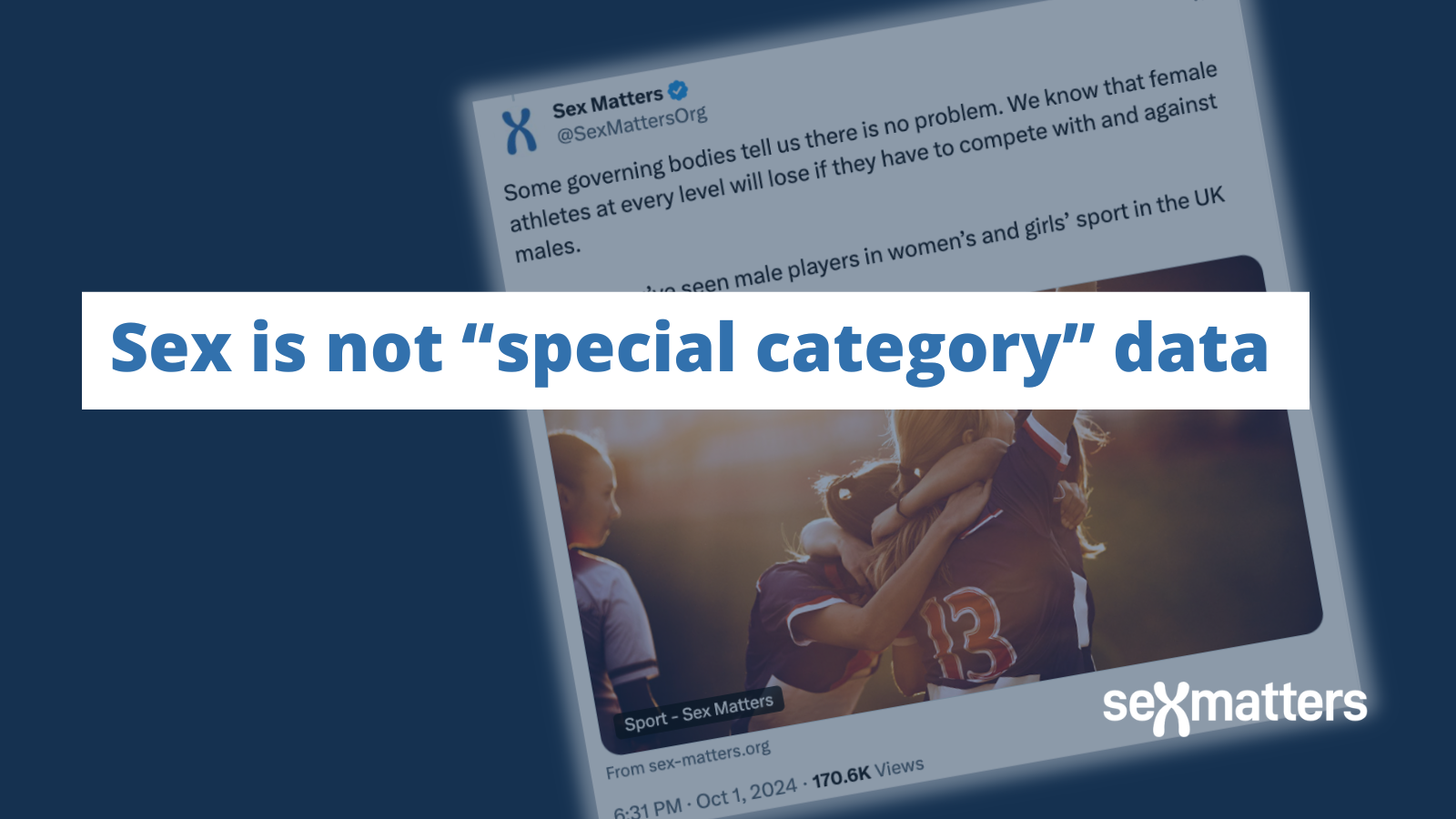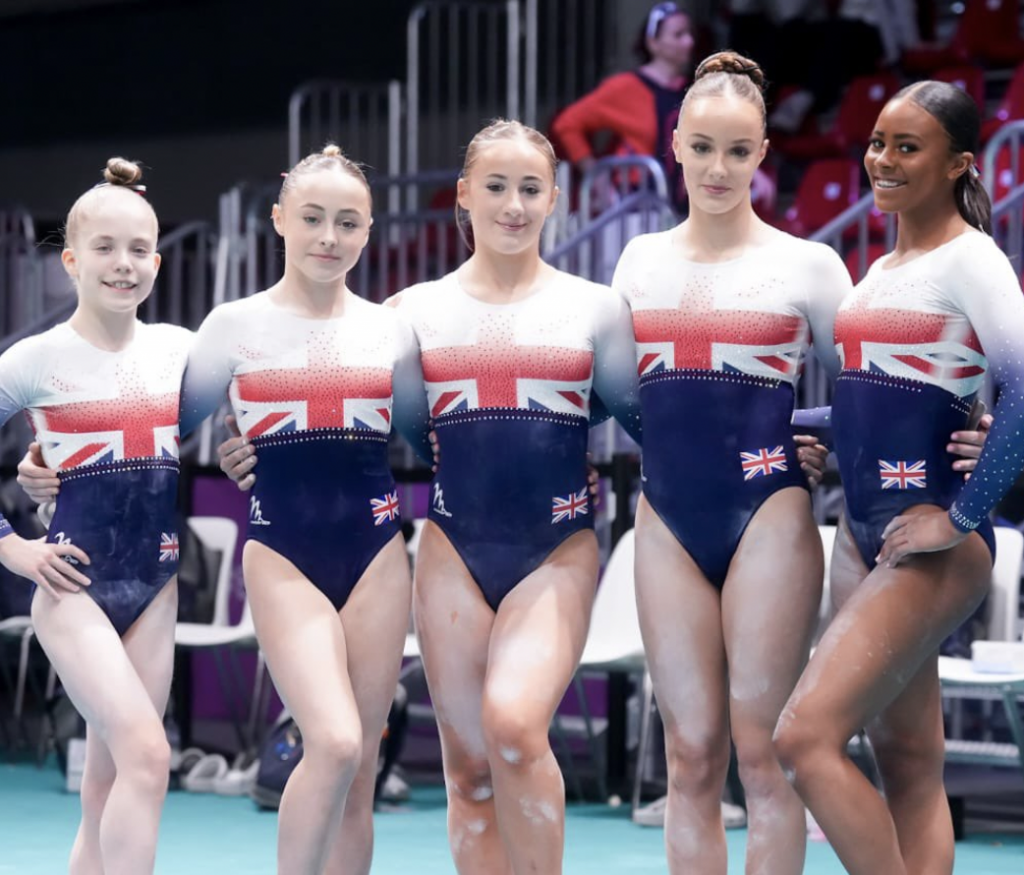Answering questions about data protection

As part of our ongoing work on defending the female category in sport, we recently asked people to get in touch and tell us how male inclusion in women’s sport has affected them. We want to be able to demonstrate the extent of the problem across teams, leagues and competitions in the UK.
We have received a number of reports from women about their experience. We have also received several emails and letters asking questions about how we handle data. Some people have have asked whether we are processing “special category data” about trans-identifying men in women’s sports.
Are we collecting special-category data?
Special-category data is personal data that needs extra protection because it is sensitive. It includes information on individuals’ health, their philosophical beliefs, their sex life and their sexual orientation. It is covered under Article 9 of the UK GDPR.
The Information Commissioner has said that information about someone’s “gender identity” might be special-category data depending on the circumstances:
“For example if the information also reveals specific details about the person’s health status or medical care, or an organisation uses it to make specific inferences about health.”
The Information Commissioner goes on to say:
“If there’s no specific information or inference about someone’s health (or any other specific category such as sexual orientation or sex life), it isn’t special category data.”
Sex (whether someone is a man/male or a woman/female) is not special-category data. It is usually obvious, frequently relevant and generally widely known.
The fact that someone is competing in a particular sports event is also not special-category data. The names and photos of competitors are reported as journalism on the back pages of local newspapers every week, on social media, and on sports club and league websites. This is everyday information.
For example:

Rhian Cleverley is a woman. She is captain of Lewes Football Club Women’s team. She has also played on the Welsh national team.
Blair Hamilton is a man described by Brighton University as a “trailblazer in the world of sports research”. Hamilton played on the women’s football team Saltdean FC.


Shantae-Eve Amankwaah, Ellie Lewis, Izzy Priestley, Jemima Taylor and Tahlia Wyatt are five girls who recently represented Great Britain in the Junior Women’s European Artistic Gymnastics Championships, coming fifth overall.
Natalie Washington plays for women’s football team Rushmoor FC. Washington is a man who is Campaign Lead for the Football v Transphobia campaign.


Liam Pitchford and Anna Hursey were knocked out of the European Table Tennis Championships medal in the mixed-team quarter-finals in October 2024. Pitchford is a man and Hursey is a woman.
Amelia Short plays cricket for a women’s team for Warrington Cricket Club. Short is a young man.


Caz Field plays for Huddersfield Women’s Football Club. Field is a woman.
Julie-Anne Curtis is a man who has played women’s rugby. Curtis raised thousands of pounds to mount a legal challenge to try to force the Rugby Football Union to allow men to play rugby on female teams.


Delia Johnson plays women’s netball. Johnson is a man and has been influential in getting sports governing bodies to open up women’s sports to men who identify as women.
Lauren Jeska competed in women’s fell running and holds the Aberystwyth record for the “fastest female” for the local parkrun course. Jeska is a man.

There is nothing unusual or sensitive about saying that a particular man or woman competed in a particular sports competition. And there is nothing unlawful about having clear rules that exclude all male participants from a competition category in order to provide fairness and safety for female participants.
This does not change because someone says they are “non-binary”, “trans femme”, “trans masc” or a “trans woman” or “trans man”.
Saying that someone is a man or a woman is simply noting their sex. It is personal data, like their name or age, that can be processed for a range of ordinary purposes under UK GDPR. If this were to be made difficult, it would become impossible to enforce sex-based rules, or to discuss the need for them using examples. Which is what we are trying to do.
To the extent we are subject to data-protection law when we collect or use data that people send us, we are doing it for a purpose that is a “legitimate interest” of Sex Matters. A balancing test is provided for this in the data-protection regulations:
“Processing is necessary for the purposes of the legitimate interests pursued by the controller or by a third party, except where such interests are overridden by the interests or fundamental rights and freedoms of the data subject which require protection of personal data, in particular where the data subject is a child.”
Under Article 8 of the European Convention on Human Rights, everyone has the right to respect for his private and family life, his home and his correspondence. This does not translate into a fundamental right or freedom to compete in sports competitions while keeping your identity or sex private. Nor is it a fundamental right to demand that other people pretend not to know what sex you are.
Where can I find out more about the project?
What is our privacy policy?
You can find our privacy policy on our website, and we have recently updated it to make sure that the answers to these questions are clear.
You can also read our Data matters guidance on collecting and recording data on sex and transgender identity, and our Media handbook on when and why it is right for journalists and editors to talk about people’s sex, and the problems that result if they fail to do so.
If you have experience of male competitors in female sporting competitions, tell us about it.
